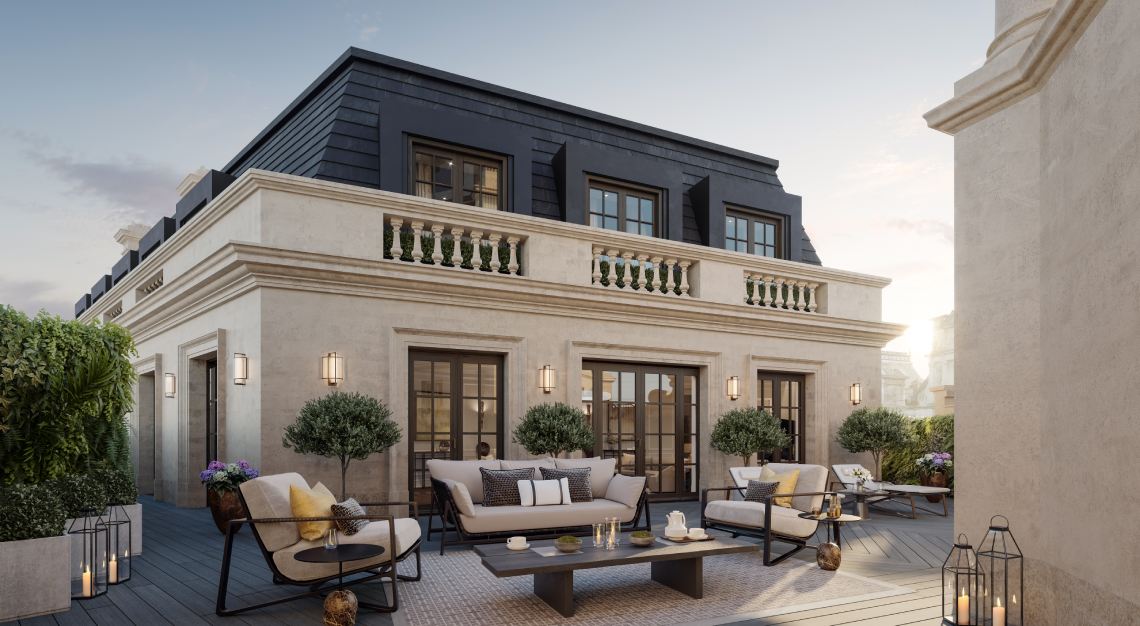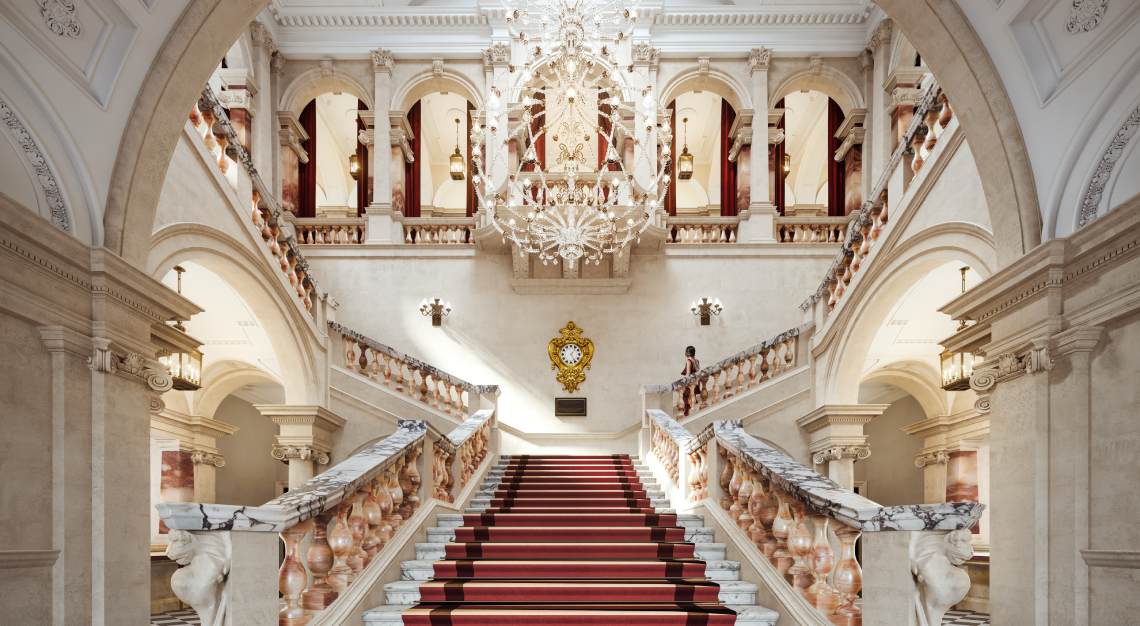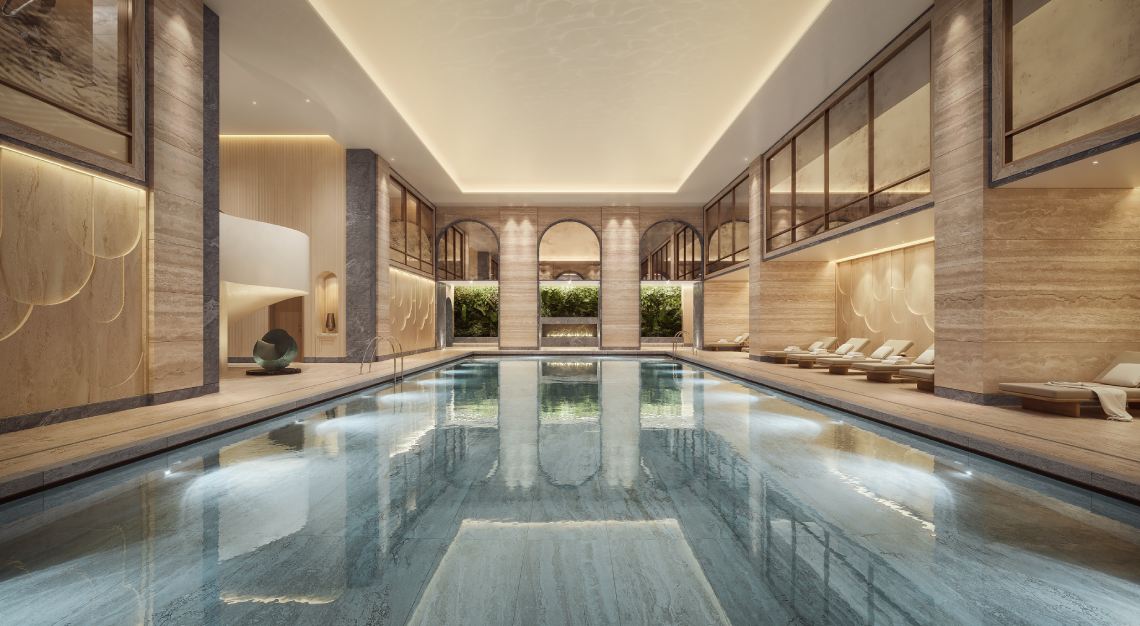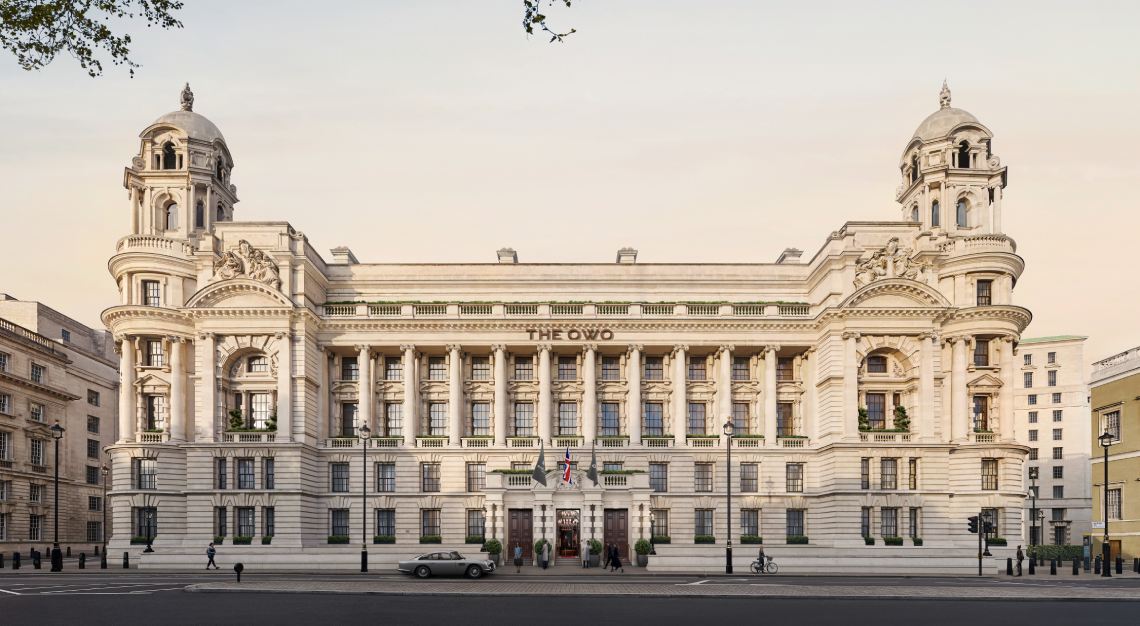Need more tips on buying or selling luxury real estate? Florian Loloum, managing director at One Global Prime, Private Office and Labs, has some answers
Despite the global pandemic, the luxury property sector has been surprisingly resilient and has even seen a fantastic boom fuelled by a growing appetite from upgraders and overseas buyers alike. There has been record activity in various global markets from London to Sydney that have helped push down inventory levels and drive prices up. Spending on prime London property in 2021 has set a new record with a 45 per cent increase on 2020 and 37 per cent higher than the five-year average. Globally, demand for luxury property was up over 33 per cent in 2021 and there is a backlog of buyers actively looking for their dream home. The sector is expected to continue growing in 2022 with a further increase in demand estimated to increase by 35 per cent in Asia and by nearly 50 per cent in the Middle-East.
Recognising fundamental changes in the context of the pandemic, many high net-worth individuals are looking for greater comfort and space where they can live, entertain and also work. In 2021, 68 per cent of luxury buyers looked for more indoor and outdoor space, while 64 per cent put a home office high on their priorities. The sector also attracts younger generations: Millennial buyers are a growing proportion of recent luxury property buyers, with Generation X, Millennials and Generation Z accounting for at least two third of the buyers in the sector.
With this in mind, here’s what you need to know to make acquiring and selling luxury real estate easier.

Buying your bespoke luxury property
Finding the right fit is not an easy task. You may have a clear vision for your dream home but it is not always easy to formulate it. You may also be surprised with what your agent comes up with, something that could be beyond your expectations. Now, a few practical tips to help you with ensuring a smooth journey toward that goal:
Engage a professional: Having a professional advise you throughout the process will make the entire journey much more enjoyable and allow you to avoid potential pitfalls. Appoint a buyer’s agent. Your agent is uniquely placed to represent your interests not only when negotiating with the vendor but also to coordinate with specialist consultants that we advise you to contemplate engaging throughout the process. Your agent will also ensure that these are reputable and professional while mitigating the costs associated.
Understand the market you’re buying into: The ownership of property is widely different whether you are buying in developed markets or emerging markets, but even within countries, various local authorities may impose different rules to owners. Besides the regulatory context of your prospective purchase, understanding the associated lifestyle, culture and community you would be joining is important, while also gaining clarity on more practical aspects such as access to amenities, shopping, parking, etc. If you are buying within a residence or a building, it is essential to review the owner’s agreement (rules applicable to all residents in the building or residence) and the costs (service charges, management fees, ground rent, etc) associated.
Patience: Arming yourself with patience is advisable. Take your time to have a fuller picture of the assets available to you and all the potential covenants, constraints, regulations and restrictions associated with your purchase. While some properties may be rare and impose a prompt decision, try to have a thorough understanding of the situation ahead of committing.
An offer doesn’t have to be legally binding: Depending on the country and the way the offer is put forward, you can impose (or will be imposed upon) some conditions for it to proceed. Typically, once your offer is through to the vendor (with your conditions to proceed), the vendor will provide heads of terms through his solicitors, which would then be presented and explained to you by your appointed solicitor. Once agreed, a legally binding agreement is executed by both parties effectively concluding the acquisition and transfer of title.

Mortgage finance even if you have the cash: Buying property as opposed to many other asset classes offer a singular benefit: you can leverage it. Taking advantage of specialty financing allows you to deploy only what is required and use the remainder to secure further your wealth through investment.
Special Purpose Vehicle: More often than not, luxury assets are held in special purpose vehicles, a corporate structure dedicated to servicing the asset. The structure owns the asset and you are the controlling party behind it. Beyond the obvious tax mitigation it entails, you can also elect to establish a shareholder structure aligned with your legacy plans. If the property you are interested in is in an existing special purpose vehicle structure, it is important to have full clarity on its ownership structure and whether there are any potential liabilities attached to it. In 2021, 47,400 companies were set-up to hold property in the UK (30 per cent in London), a 15 per cent increase from 2020.
Stamp duty: Considering the quantum of luxury properties, it is important to get a full picture of the acquisition costs, especially the stamp duty applicable, which may vary widely depending on the current ownership structure. If it is privately owned, you are likely to have to pay for a high stamp duty, but this could be considered during the negotiation process and lead to more favourable terms. If this is the case, it is recommended, where possible, to place the asset in a special purpose vehicle, which would ensure that your potential disposal or transfer to your children is more straightforward.
Leasehold vs Freehold: Some countries do not allow freehold properties and you will have to purchase your property as a leasehold. This is not so much a major issue, but it effectively means you own part or the whole structure on the plot of land and the land is owned by a third party, who will charge you a ground rent for the usage of his land. You should have full clarity on the lease terms, maturity and associated covenants. Lease regearing can be an expensive exercise and can even refrain you from disposing of your asset, so ensure you still have at the very least five or six decades in the lease or a clear path to the regearing if it gets closer to maturity.
Condition: Thoroughly inspecting the property is absolutely essential. Engage an agent who has the experience and can identify potential red flags. A particular attention should be placed on flooring (especially wood), bathrooms and kitchens as these are typically the highest costs to refurbish or repair. If your offer is accepted, do also insist on surveying the structure integrity, especially if you have remodelling plans. Ask when the last works on the property were made and the suppliers and consultants that have delivered them.
Heritage status: While it is exciting to own a piece of history, it typically comes with constraints, constraints in gaining approval from local authorities to refurbish or remodel and, if it is a listed heritage property, it is important to understand which part of the property is concerned by the heritage protection (it is rare that the entire property is listed: typically only the facade, the roof, stairs or a particularly impressive chimney is concerned). Once you have clarity on this, do ensure you understand the correlated constraints in terms of maintenance as often only a few specialised contractors and service providers would be allowed to work on these. Gaining clarity on on-going maintenance costs over time is advisable and when the last works have been done.

Selling your luxury property
Marketing a luxury property is different from a standard campaign for a property selling off plan or from the secondary market, that goes without saying. Buyers of luxury property are typically more discerning and potentially more discreet than your everyday property purchaser. Luxury real estate is a specialised profession and ensuring that you have the right sales partner is even more important. They should have a strong reputation, network and experience in running luxury marketing campaigns. Understanding not only who the likely buyers are, but also how to reach them is of utmost importance.
Patience is your best friend: Luxury property is a niche market and buyers don’t come around every day. It’s important to plan out a marketing campaign properly, to reach as many potential buyers as possible—that doesn’t mean you’ll have to blast it far and wide, however. Targeting those who can first afford your property, second that are committed to the location and third that are aligned with the vision you had for it is important. It may take six months to a year or even longer to find the right buyer, one that will place an offer as close as possible to your expectations.
Find the right sales partner: With luxury property as a niche product, choosing the right expert who has experience and deals with the luxury day in, day out is key to a perfect sale. Working in the luxury property niche, your sales agent should:
1. Be knowledgeable about the location, the features and your own vision for the property, while providing you insights on market trends. Alignment with a prospective buyer’s expectations, values and style works best.
2. Be experienced building long-term, discreet and targeted campaigns with the relevant prospective buyer’s profile in mind. They’ll be able to discuss what type of luxury buyer is most likely to buy your property, understand the value alignment and plan on how to reach them and engage them.
3. Be able to demonstrate their ability to sell without the need for a flashy campaign. Even though you may miss out on reaching potential buyers, the campaign should reflect you and your choices.
4. Have a strong network of qualified buyers and specialised introducers to engage with.
Set the stage: You’re selling a luxury product, and to luxury buyers; whether that means staging the property with luxury furnishings for the campaign duration or hosting a buyer private event to give them a sense of living in their new address. Depending on your property and marketing campaign, you may be able to have a luxury designer furnish your property and sponsor part or all of the campaign. 81 per cent of buyers say home staging makes it easier to visualise the property as their future home. Staged homes also spend an average of 73 per cent less time on the market and sell for up to five per cent more on average.
Search beyond local: Depending on the type of luxury property you’re selling, your ideal buyer may not come locally. Each nationality may be buying for a different reason. Knowing how to reach international buyers is important, but so is the message to deliver and present your property in the most positive and impactful way. As an example, some of the top nationalities buying into Singapore’s property market include Chinese, Malaysian, Indonesian, Indian and American. Each buyer group has their preferred districts, different reasons for buying, different taste and preferences.
Embrace technology: Besides your buyers not being located in the same country as your luxury property, buyers in this segment also tend to have little time on their hands. Using the latest technology, such as 3D/VR walkthroughs can help the buyer to get a sense of the property, especially when travel restrictions apply. This is particularly important for the 18- to 34-year-old age group. Taking it a step further, if your property is unique enough, you could display it in one of the metaverses, like Decentraland and or The Sandbox—not only will it reach a new customer base, but also generate substantial PR attention, which would provide a great platform to showcase your property.
Be social… or not: When thinking of luxury buyers, you might think that the buyer is most likely 50 or older. With one of the greatest generational transitions of wealth occurring in Asia, this might not always be the case. The next owner of your property may very well be in their 20s, or their children might be in their 20s, and much more likely to find your property on social media or alternative marketing.
Alternatively, luxury property is extremely aspirational and thus very likely to go viral and may just reach the next owner of your property. This is another area where selling luxury properties is different to the everyday property and a specialist agent can take advantage of.
This strategy, of course, depends on whether or not you’re comfortable taking a public campaign approach. If you are, it’s not just about photos, but also videos and what it’ll be like to live in the property—consider combining other elements, such as staging, or highlighting the unique lifestyle offered by way of a video. Enticing prospective buyers to want to know more about your property is more important than showcasing all the features of your property.
Can they actually own? Depending on where your property is and where the buyer is coming from, there may be issues with ownership. It’s best to know that the buyer is serious and can actually follow through with the purchase before progressing the transaction too far. For instance, foreigners in some Southeast Asian countries are unable to directly own land, so a landed home may not be for them.
Luxury transactions are very different from the standard transaction. If you’re comfortable with a public campaign, be sure to maximise the opportunities that a luxury property affords—it is a very marketable asset. However, you may prefer a more discrete campaign to find the next buyer for your luxury property. Either way, ensure to work with a sales agent that understands luxury property and is able to advise you to market your home effectively to the most relevant buyers’ group, whichever route you choose.
One Global Prime, the luxury arm of One Global Group, puts the world’s most prestigious residences at its clients’ fingertips. It focuses mainly on Singapore, Australia and the UK, working with properties that range from luxurious beachside homes to historic country retreats






